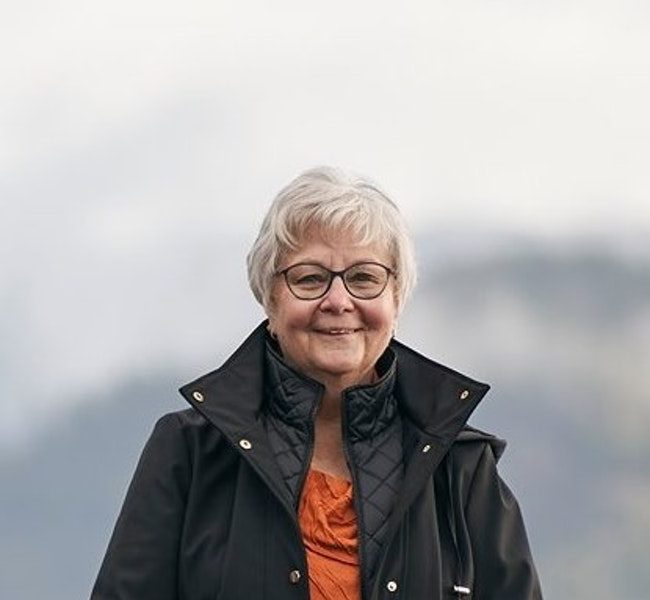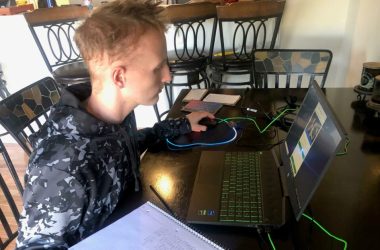 Suzanne Weber. Photo courtesy of the Suzanne Weber campaign
Suzanne Weber. Photo courtesy of the Suzanne Weber campaign
Newly sworn-in House District 32 Oregon House Representative Suzanne Weber (Republican/Independent-Tillamook) has been appointed by Speaker of the House Tina Kotek (D-Portland) to the position of vice-chair of the House Committee on Education.
Kotek did not release an official statement as to how she decided to appoint Weber, but previous observations made by Tillamook city and county residents indicate Weber’s three-decades-long career in primary education suggests many of her constituents believe the newly-elected Oregon legislative representative is more than qualified to assume the role as vice-chair of the House education committee, even if she is in her freshman term as an Oregon legislator.
“It’s quite an honor, I have to say,” Weber said. “I was appointed by (Speaker) Kotek, who is in charge of all committee assignments. She interviewed several people, and I was quite amazed that I fit (into what she was looking for right after I was elected). I was amazed that the caucus was pleasantly surprised, also.”
Weber said it was a goal of hers to be appointed to the House Committee on Education, but that one thing she believes, as she begins to concretely establish her goals and policy agenda, is that education throughout Oregon needs to be fully funded — a fact she said, her Democratic election opponent, Debbie Boothe-Schmidt, continuously attacked her claiming Weber actually wanted to de-fund education.
“That couldn’t have been — now and then when (Boothe-Schmidt) said it — further from the truth,” Weber said. “It really is a testament to where I’ve been and what I did during my 30 years in education that I would be assigned to this committee.”
Weber said she already is starting to hear a gamut bills that are now being proposed during these early stages of the 2021 full legislative session.
(On a side note, for those Oregonians, or recent transplants who may not fully be aware of the state’s legislative approach to government, the Oregon Legislature meets every other year for full sessions and meets for short sessions, often just weeks long, every other year, such as in 2020.)
“People are very worried about what’s going to happen to them because basically allocations have been flattened in the new proposed budget, with all things happening regarding (COVID-19), and concerns about how to go forward to allow (teachers) to keep making a living while being able to provide a level of education necessary at the university level, and also the K-12 level,” Weber said.
“Then, there is something I’m really concerned about which doesn’t get the attention of lawmakers or the media as much as it should,” she continued. “After we started (making) broadband (internet access) accessible (during the last several years) we continue to not address the needs of people, schools, and businesses across rural Oregon. There is very limited interconnectivity available in a majority of places — and I’m speaking of House District 32’s coverage area but also other rural towns and communities. As a result, it negatively impacts our kids’ ability to learn and limits our businesses’ capability of delivering services or goods timely, especially when we are suffering through a pandemic and many live in areas along the coast where the potential (exists) for an (offshore) earthquake — vulnerable due to the lack of high-speed internet connectivity, which contributes to early-warning systems.”
These are very real threats that exist today, which could be curtailed by increasing the fiber-optic infrastructure in small towns and rural areas to provide the public with real-time, immediate warnings that alert the public in a timely fashion, i.e. immediately, because current internet connections are too slow to provide help to students, businesses, and tsunami or bad weather warnings systems, even Amber Alerts, Weber said.
She also noted that during her time as a Tillamook city councilor and subsequently mayor — a position which she resigned last November following her election to House District 32’s seat in Oregon’s congressional delegation — the town rolled out a fiber-optic internet backbone that provided the fastest speeds possible for many local customers.
She said Tillamook’s build-out of underground fiber-optic internet lines initially occurred due to the concern of the town’s business operators, but once construction completed school officials began asking students how many of them did not have the ability to get on the internet from home, and while she didn’t have the number of students who answered
affirmatively to publicly share, Weber said it was astonishing to see how many families continue going without reliable high-speed internet connections in the year 2021.
“We’re losing a whole segment of education, possibly because we don’t have the ability to provide high-speed, reliable internet connections to our schools,” she said. “Businesses and governments must have that high-speed connectivity, but equally and more important is that our school-aged kids have that access to online learning, especially from home.”






